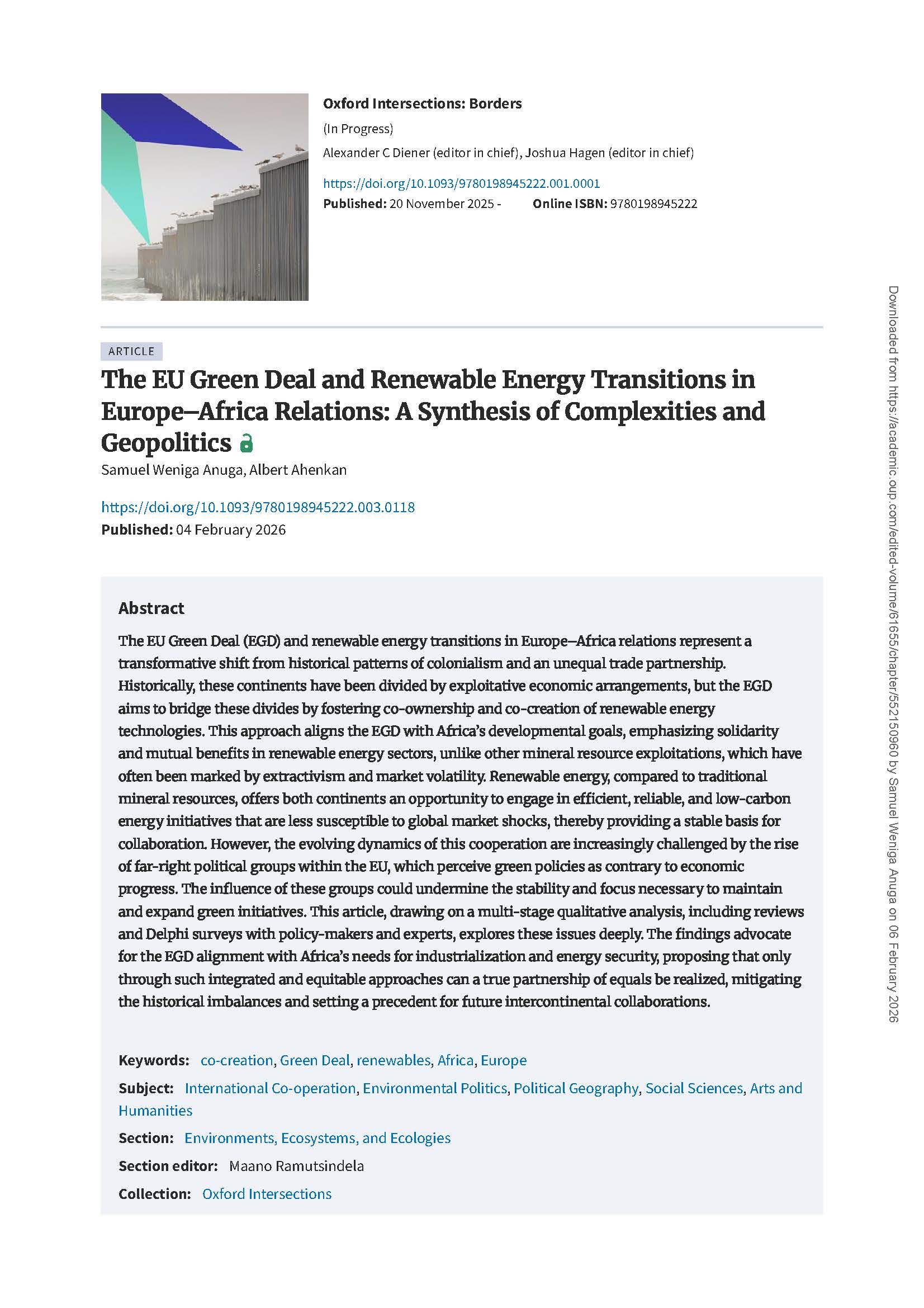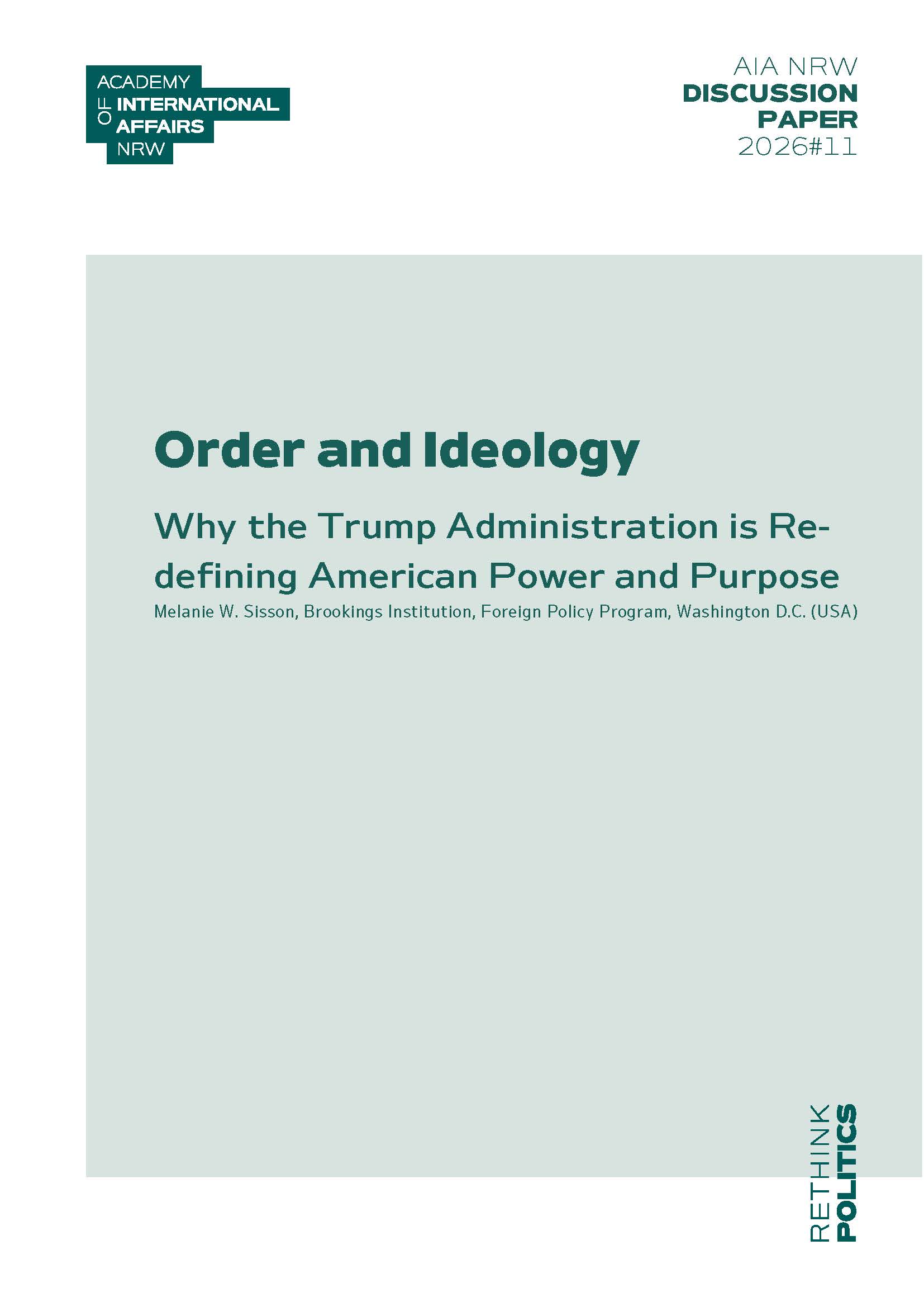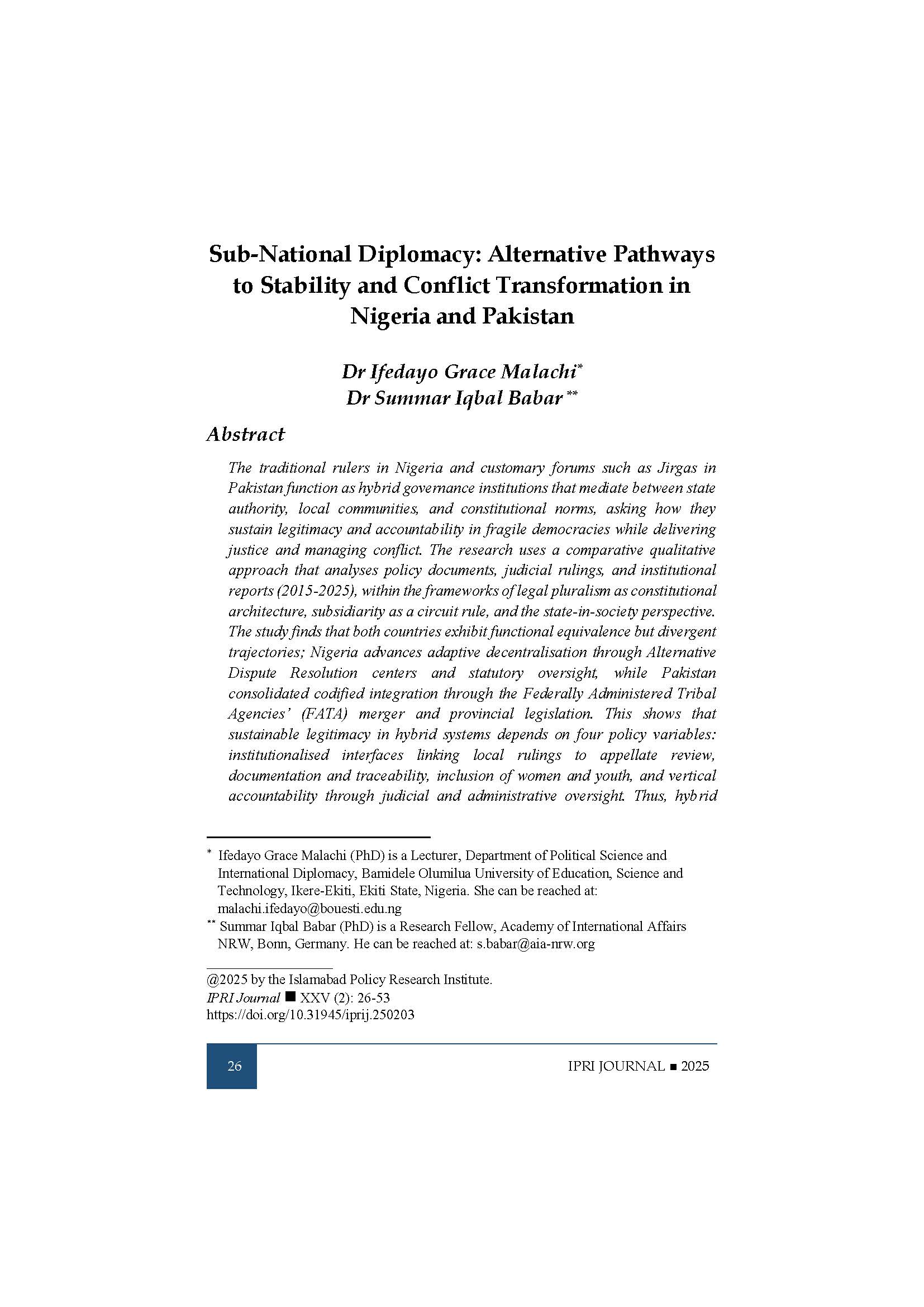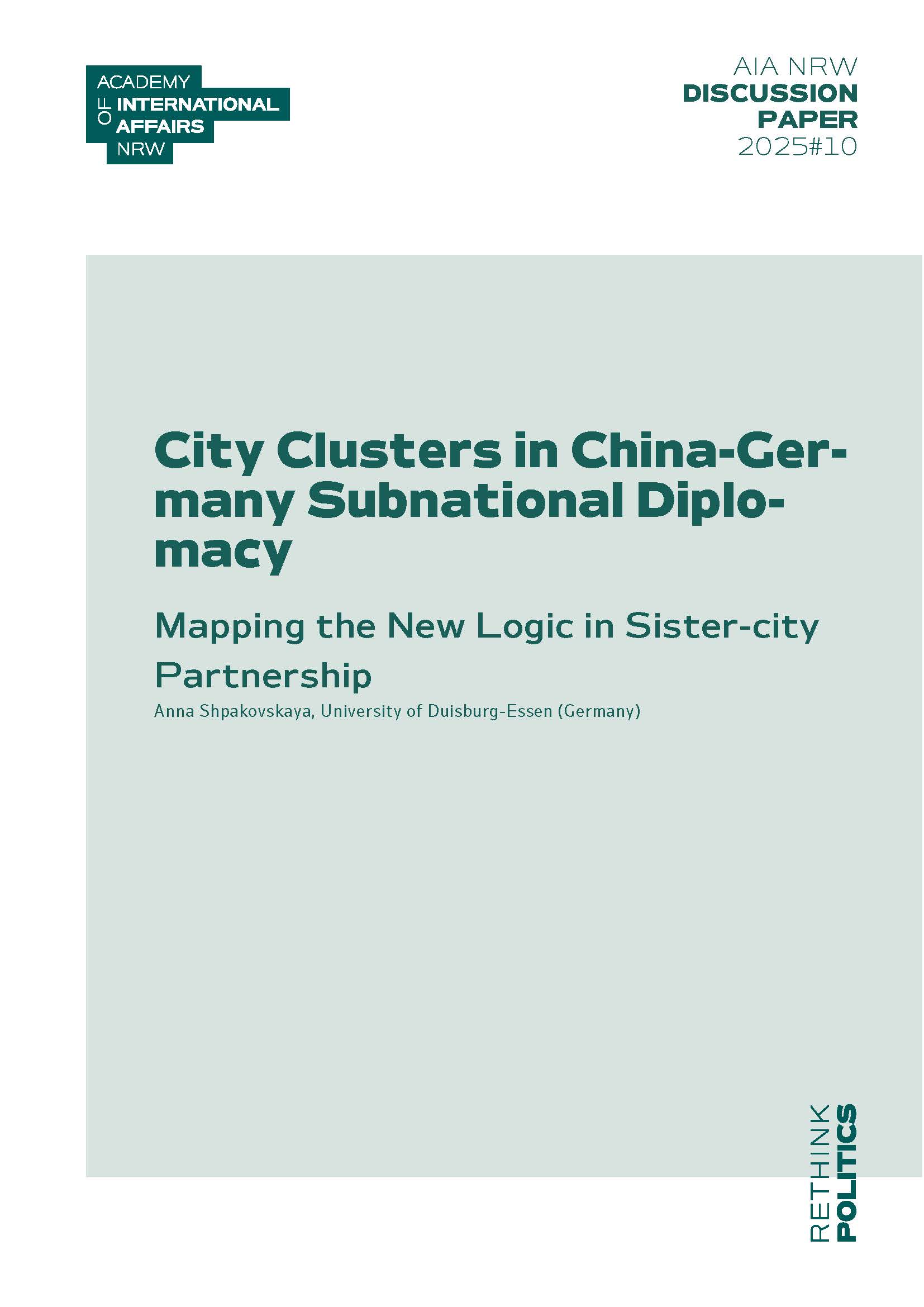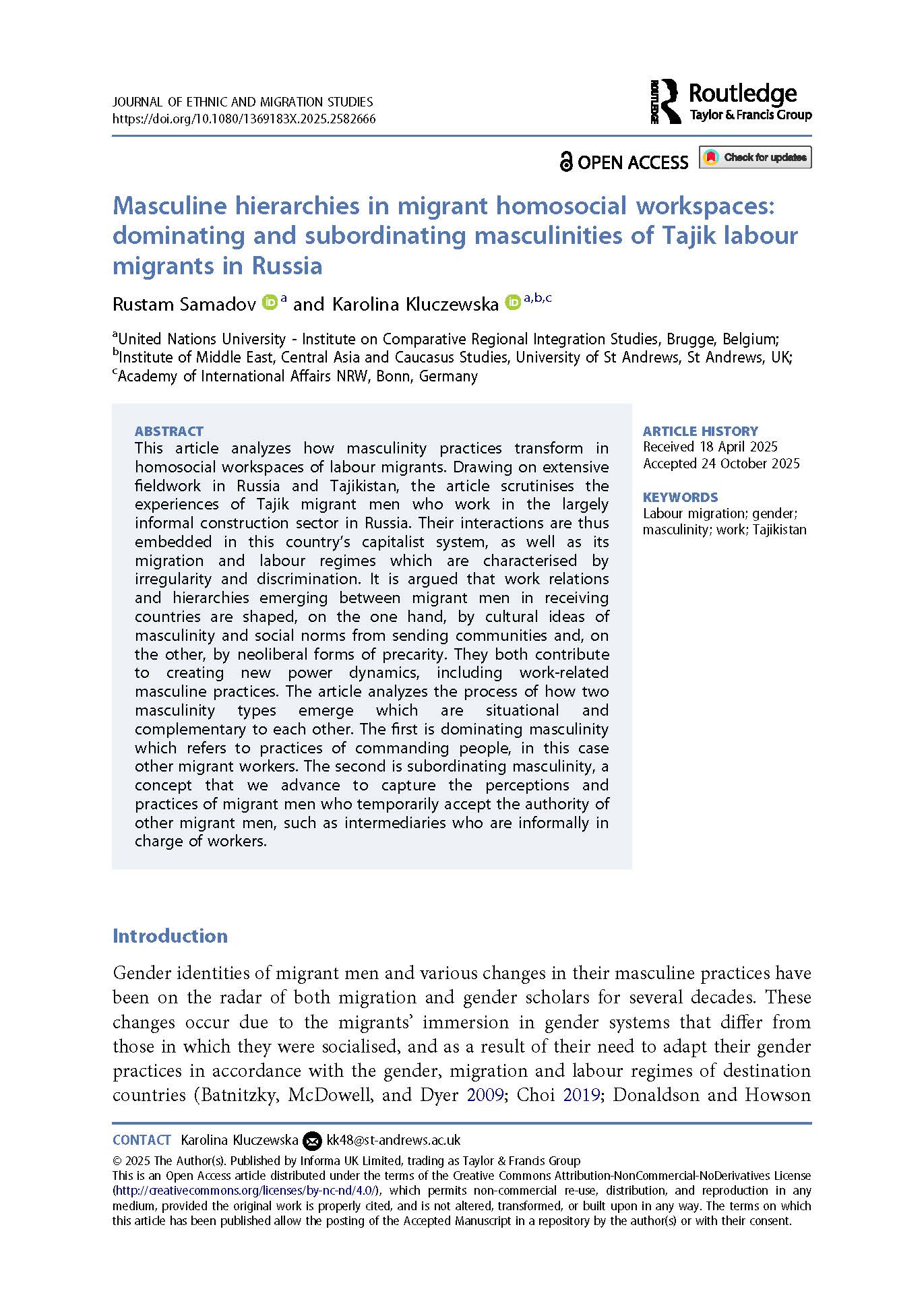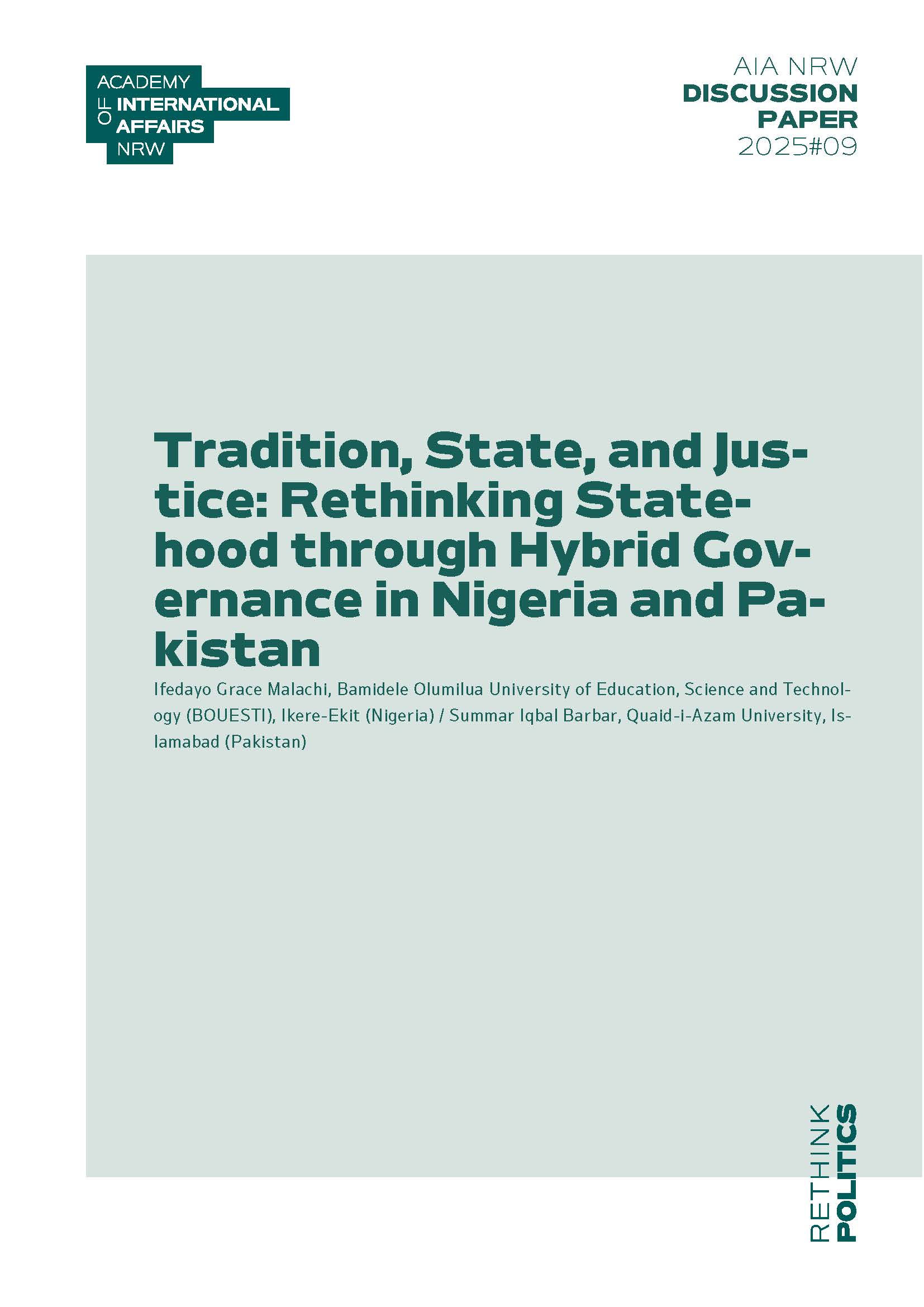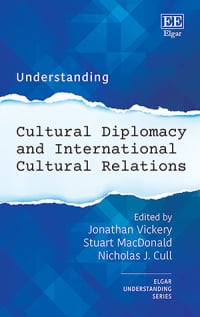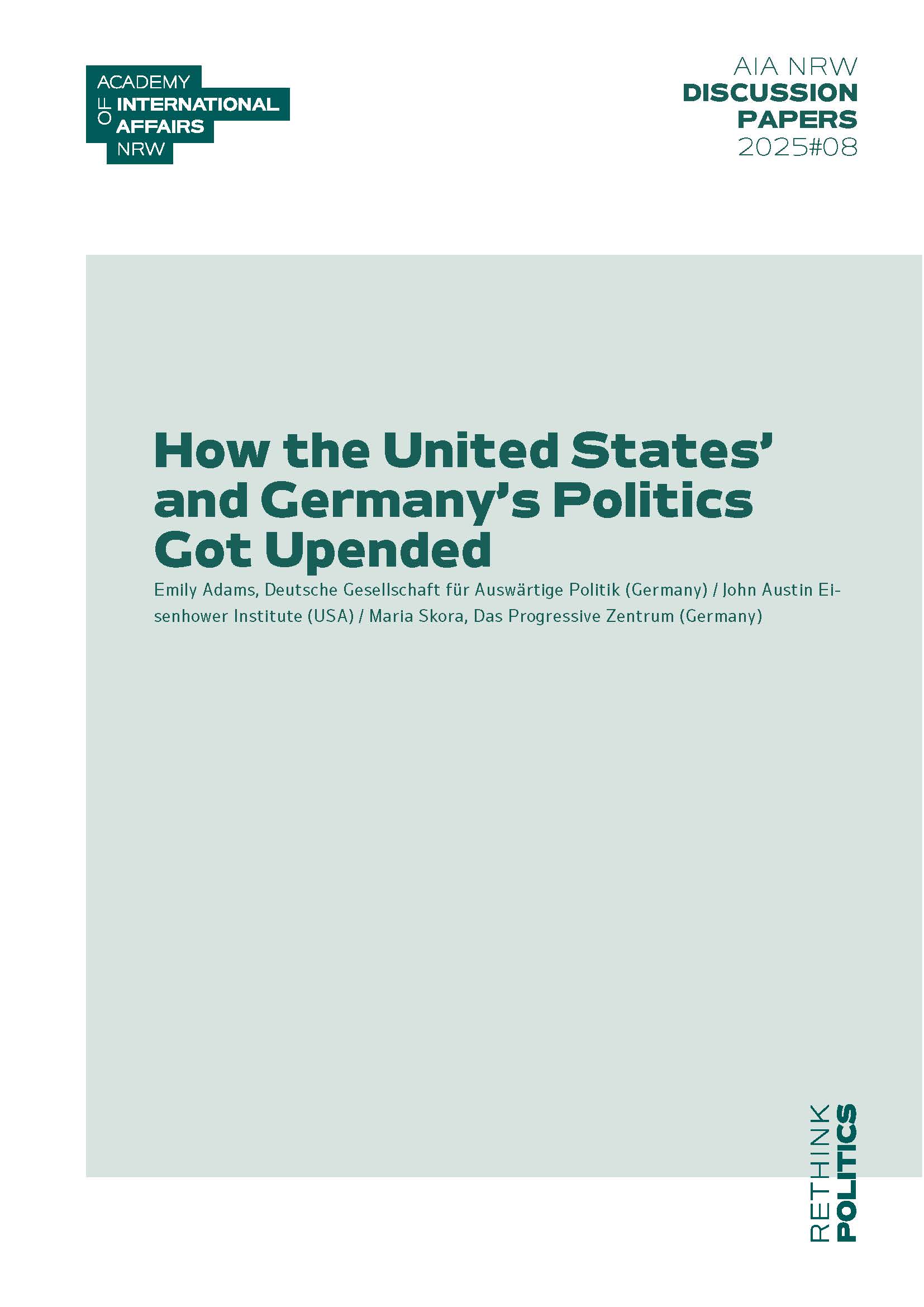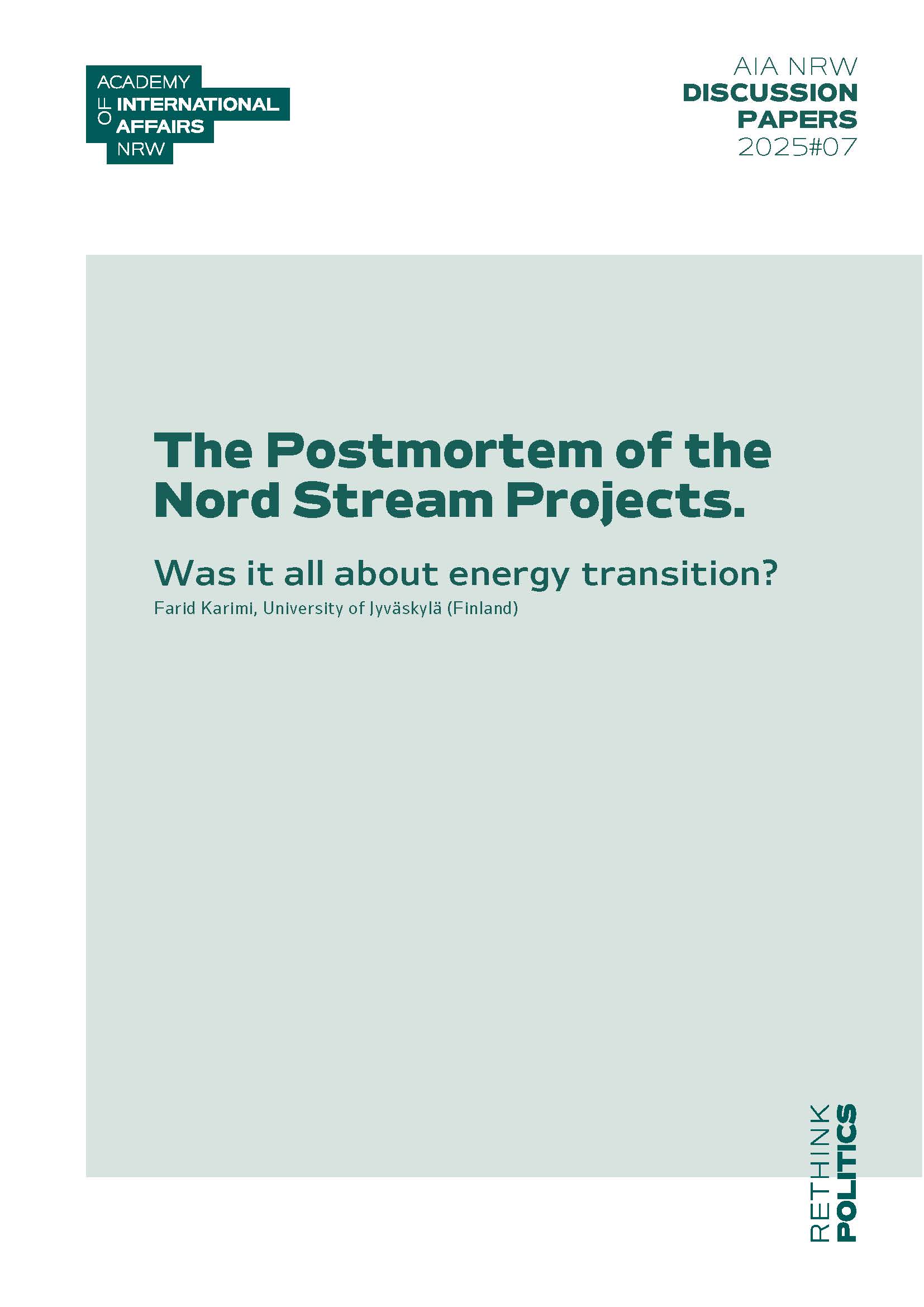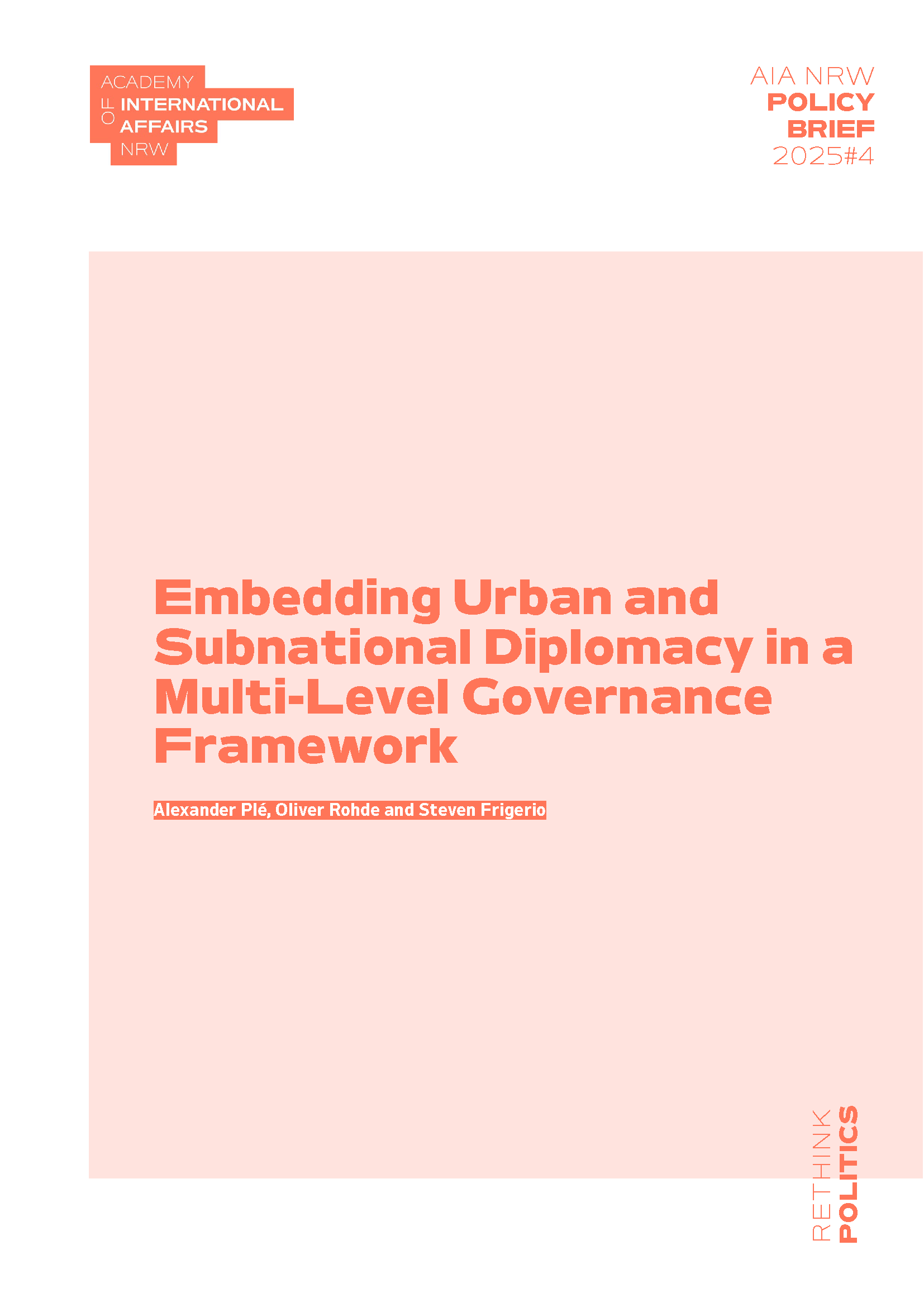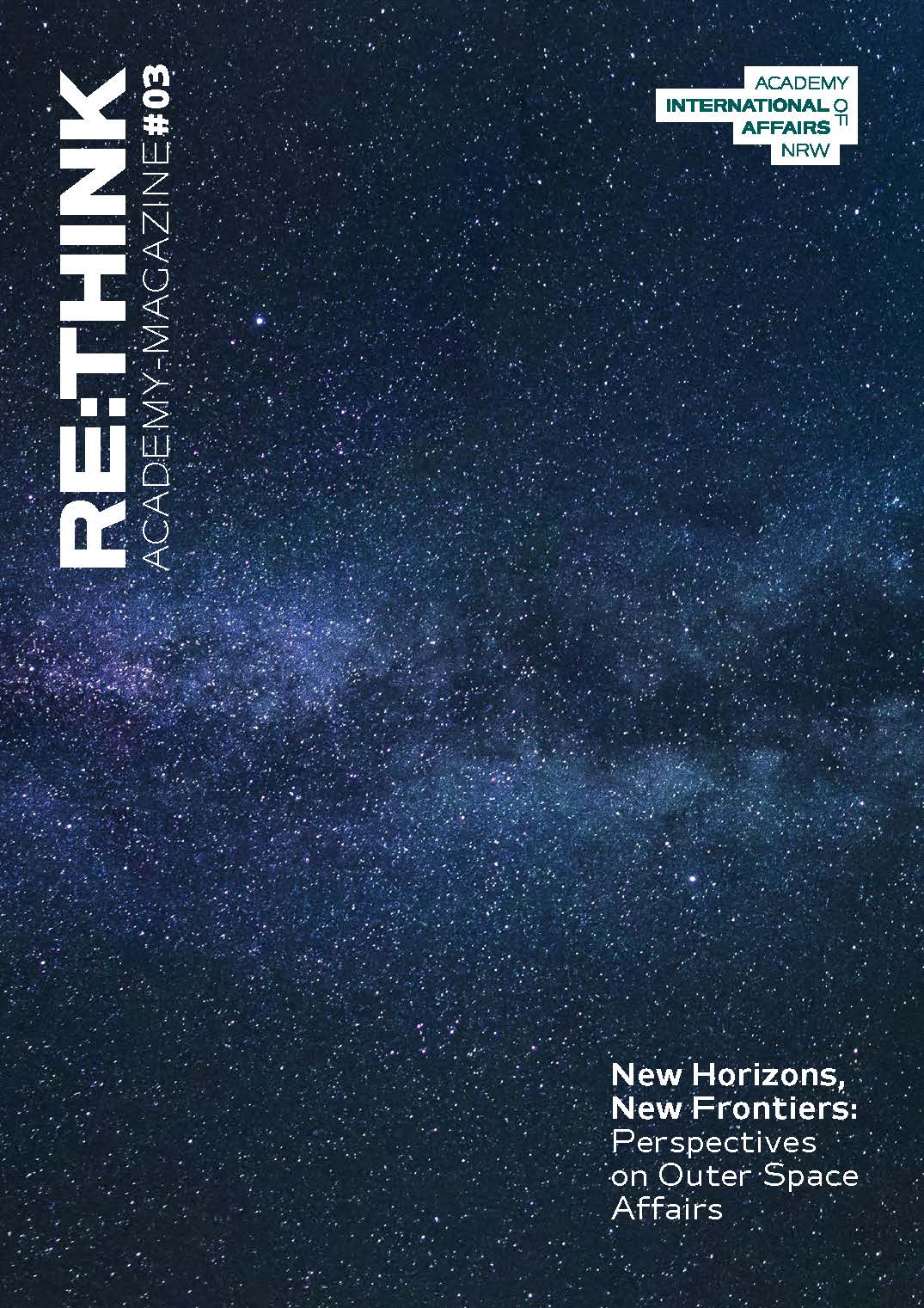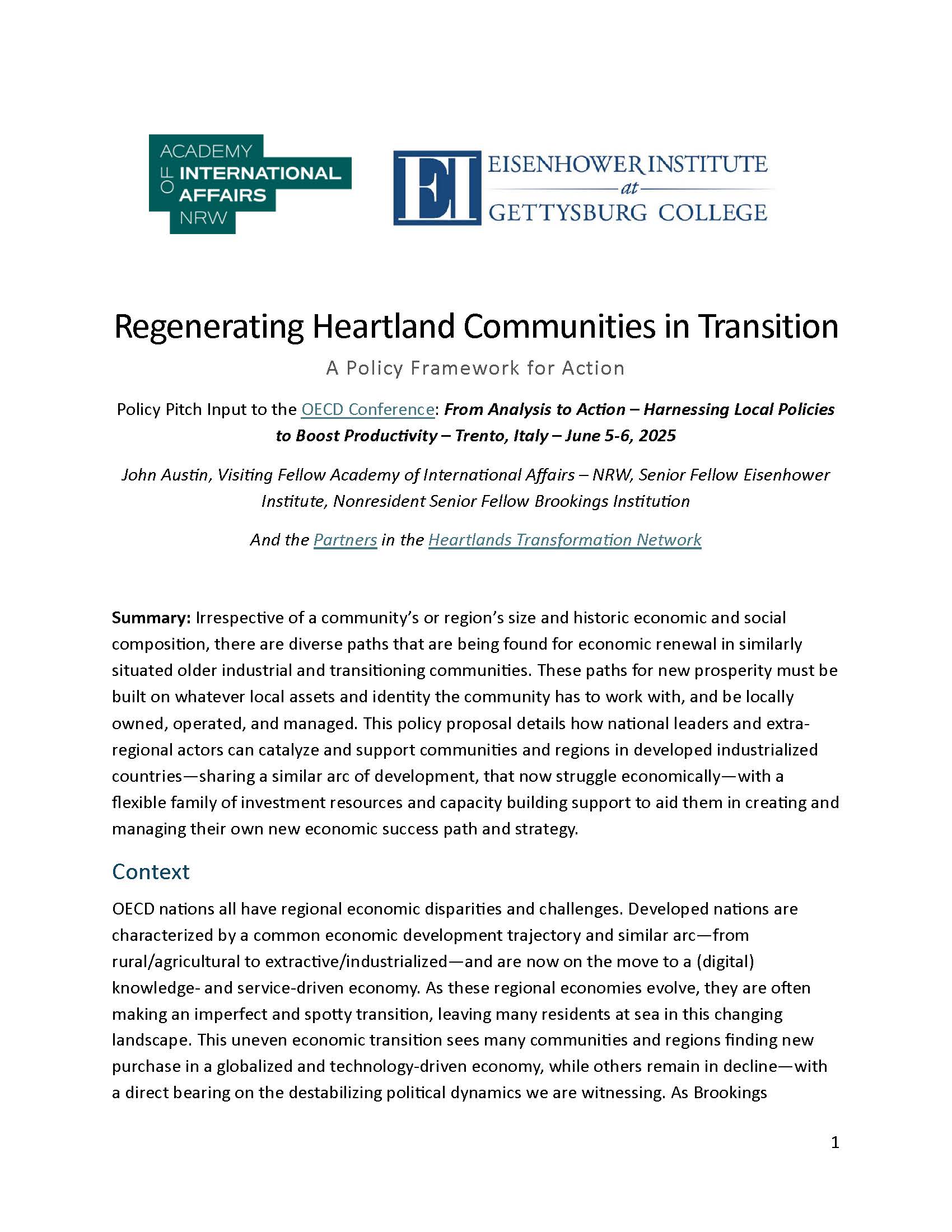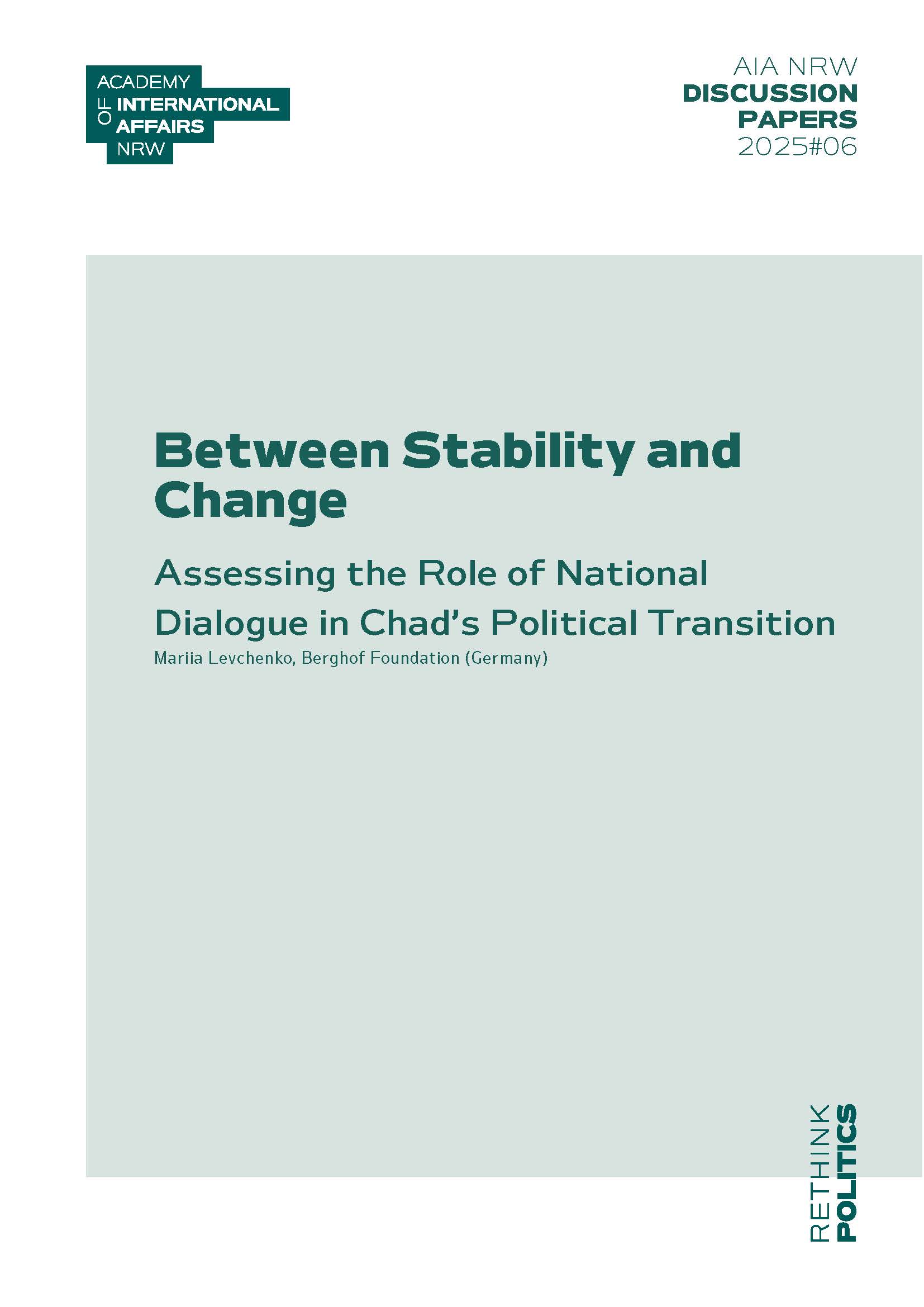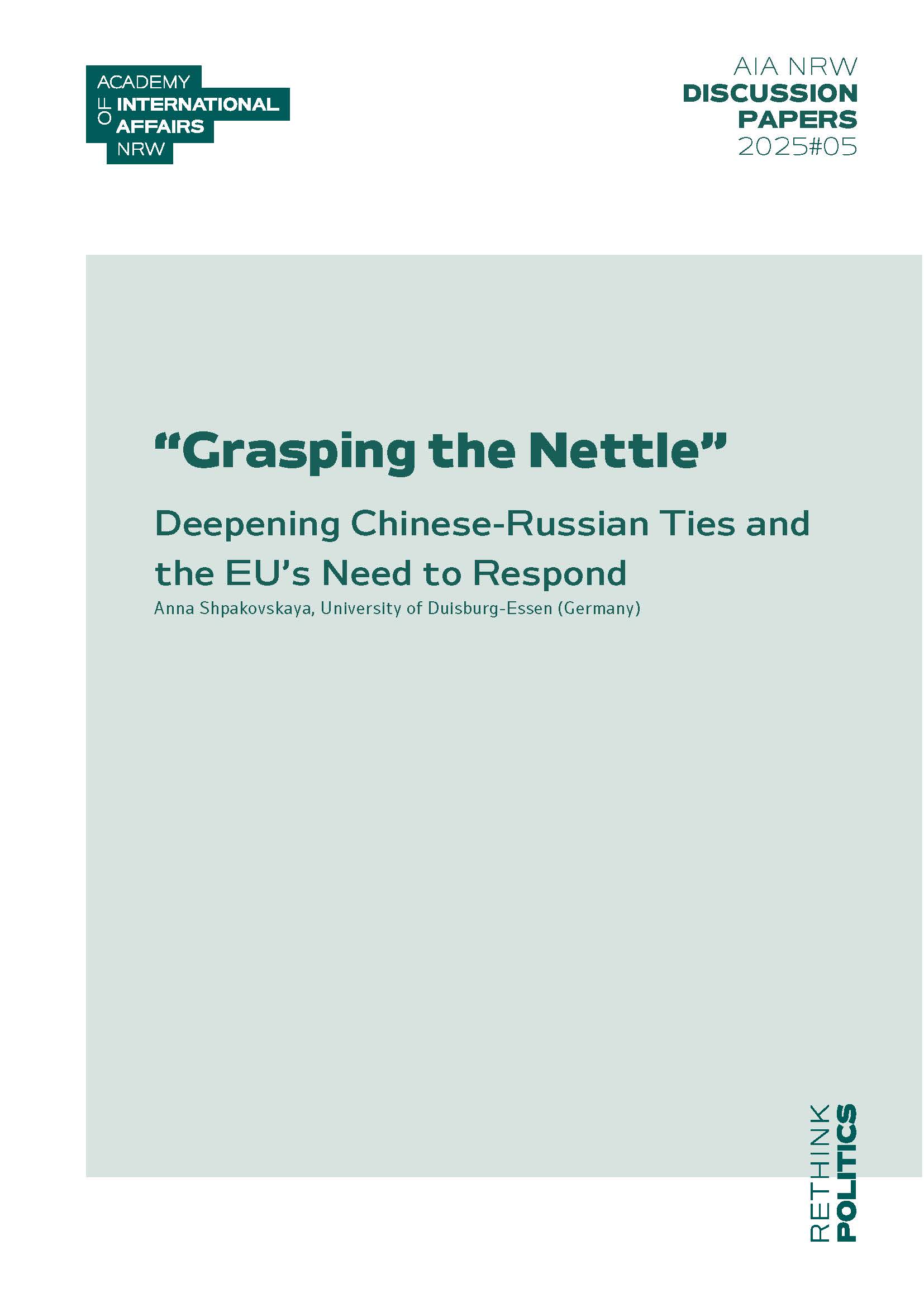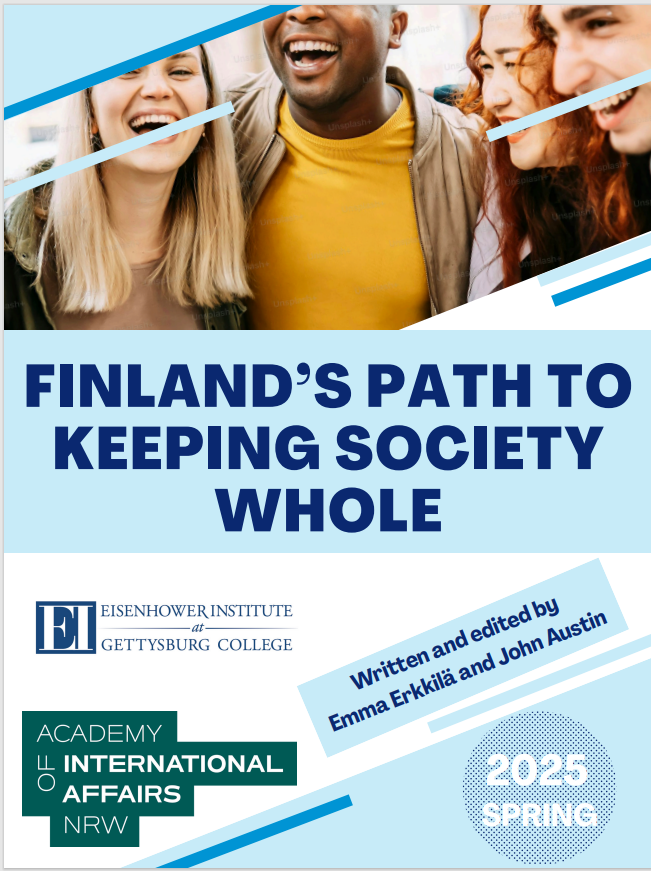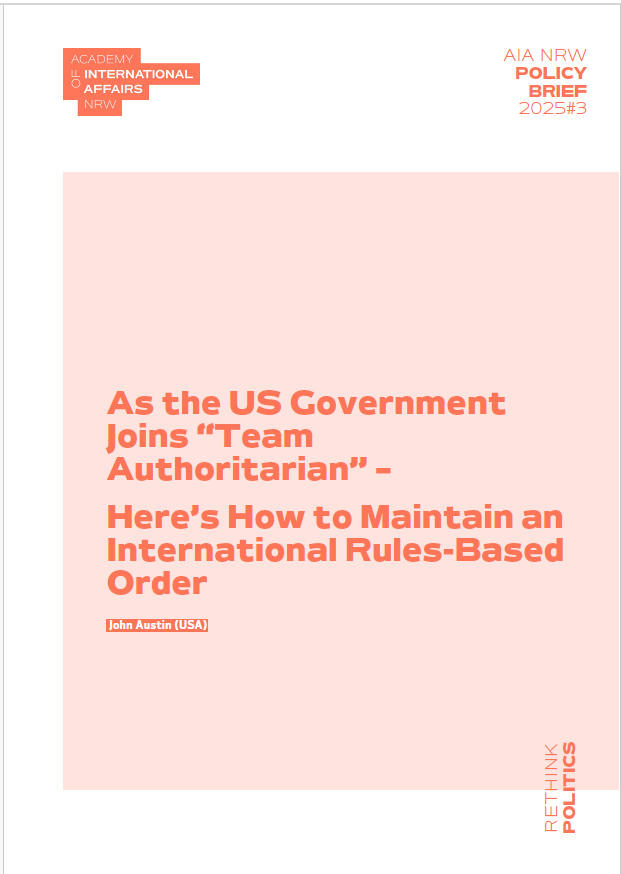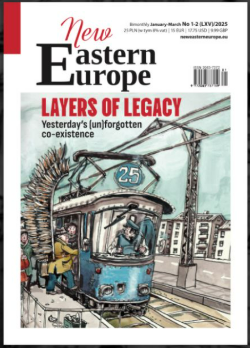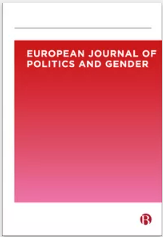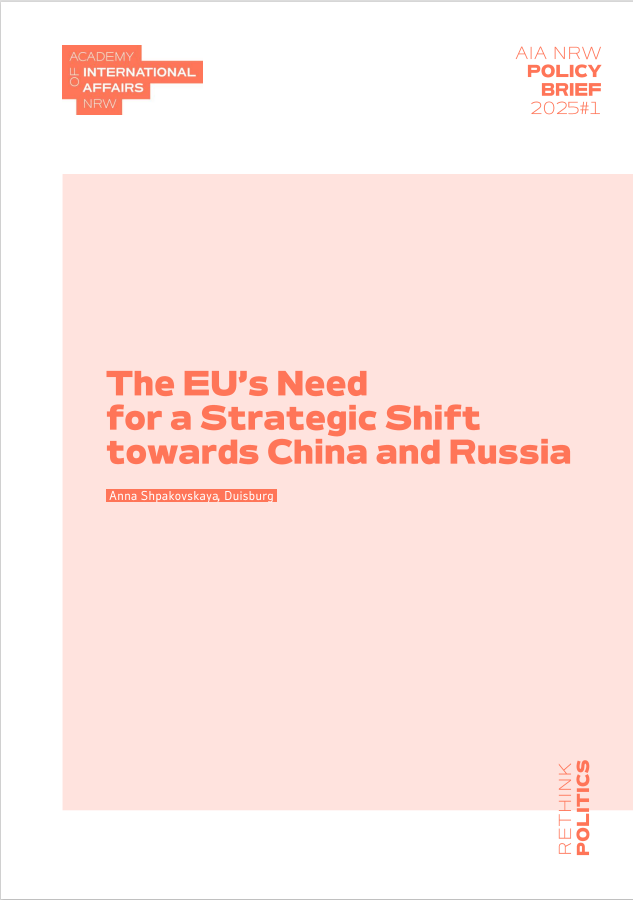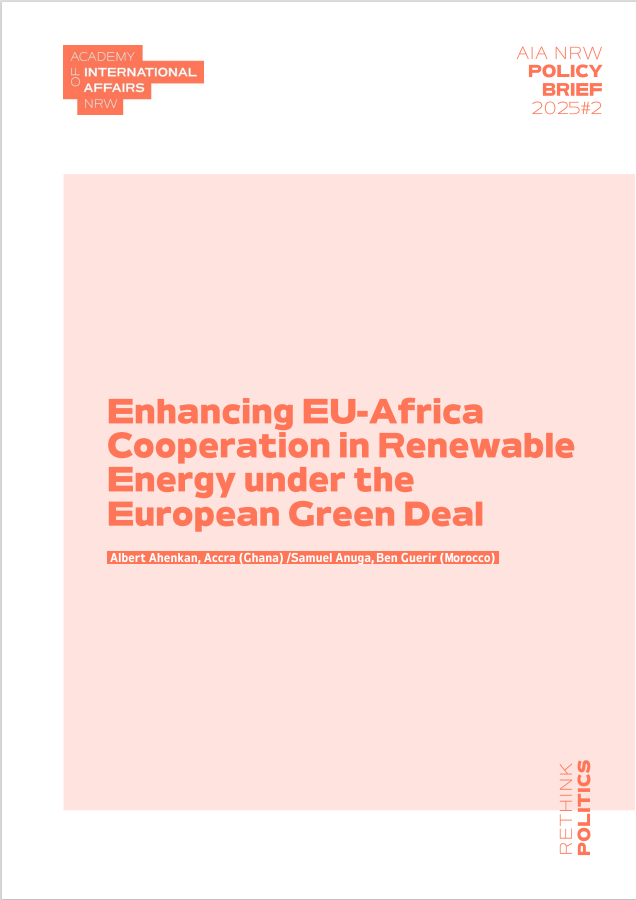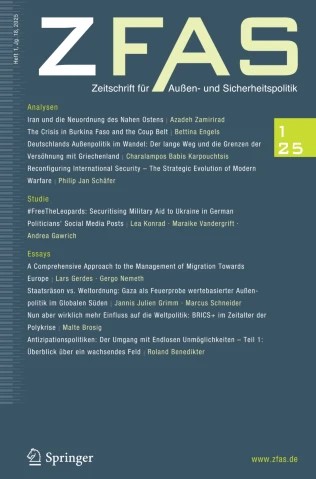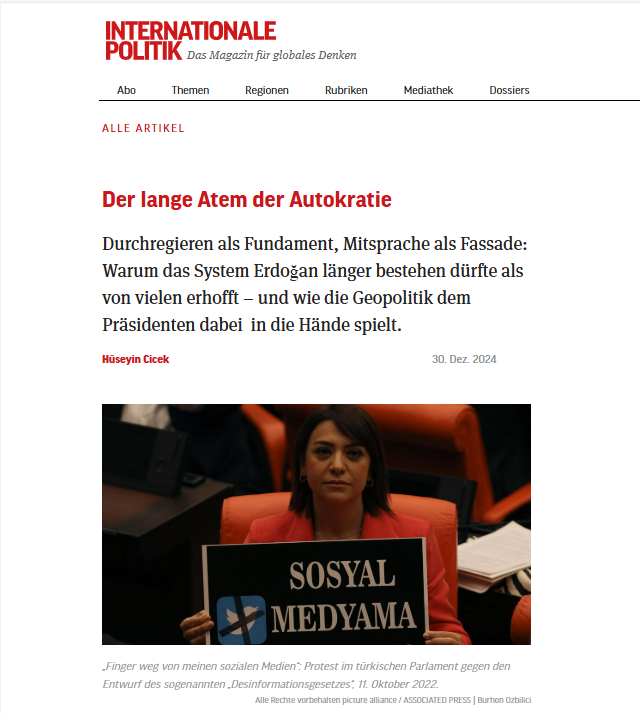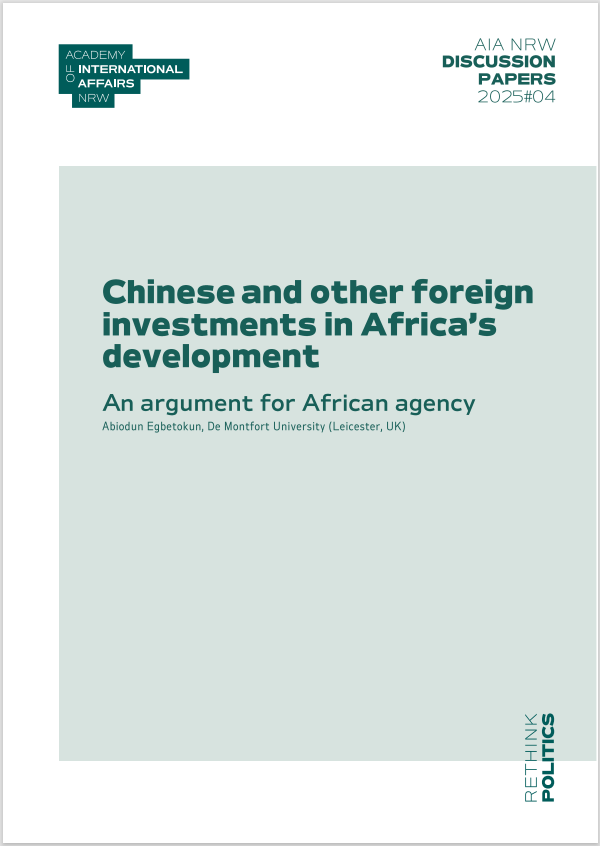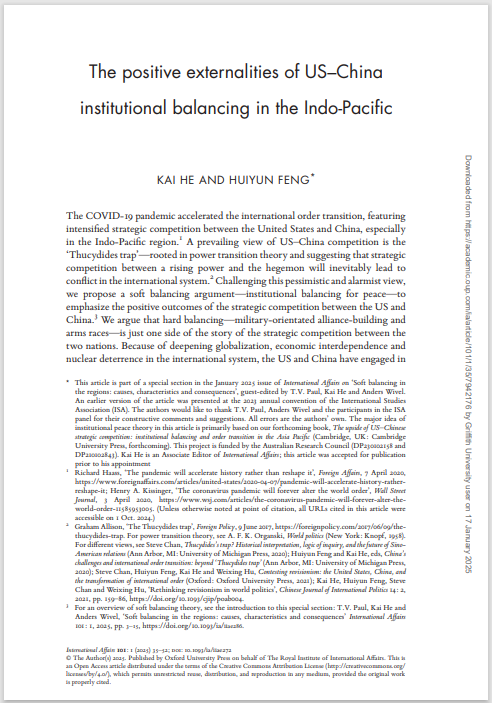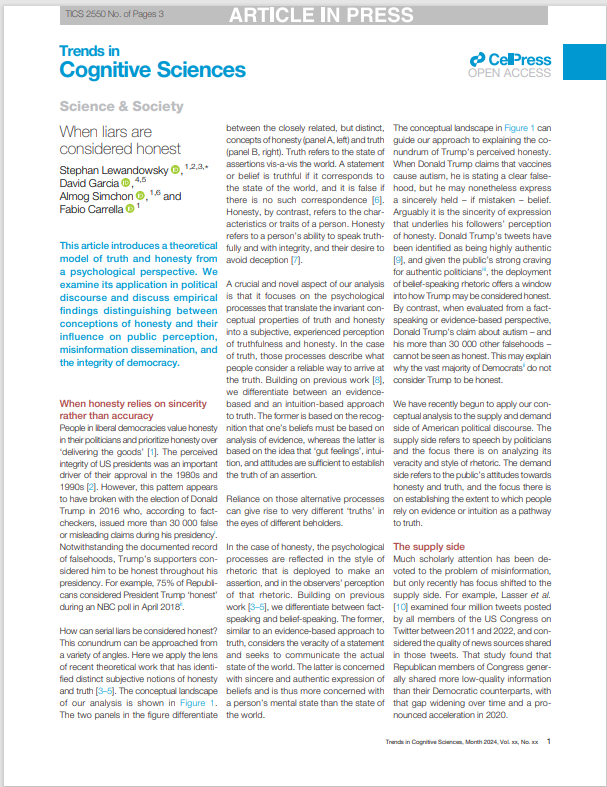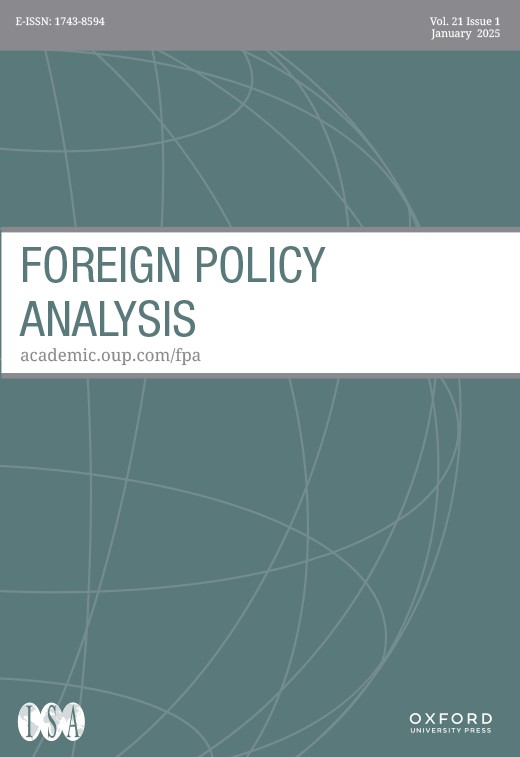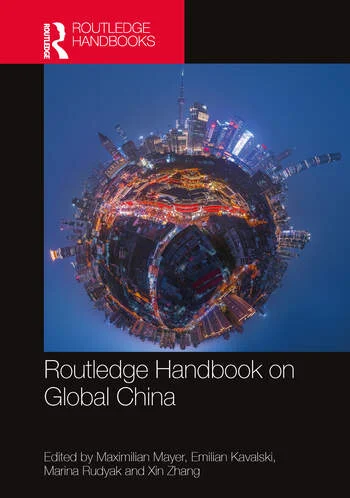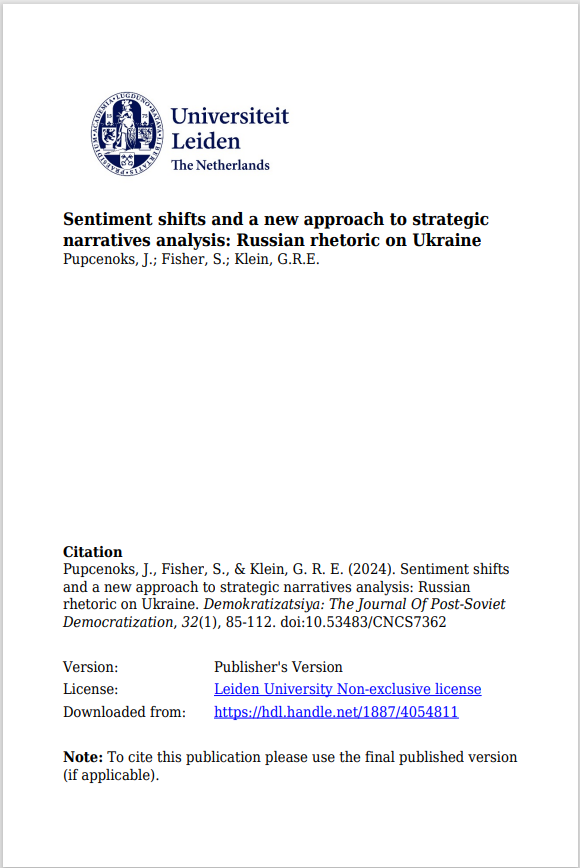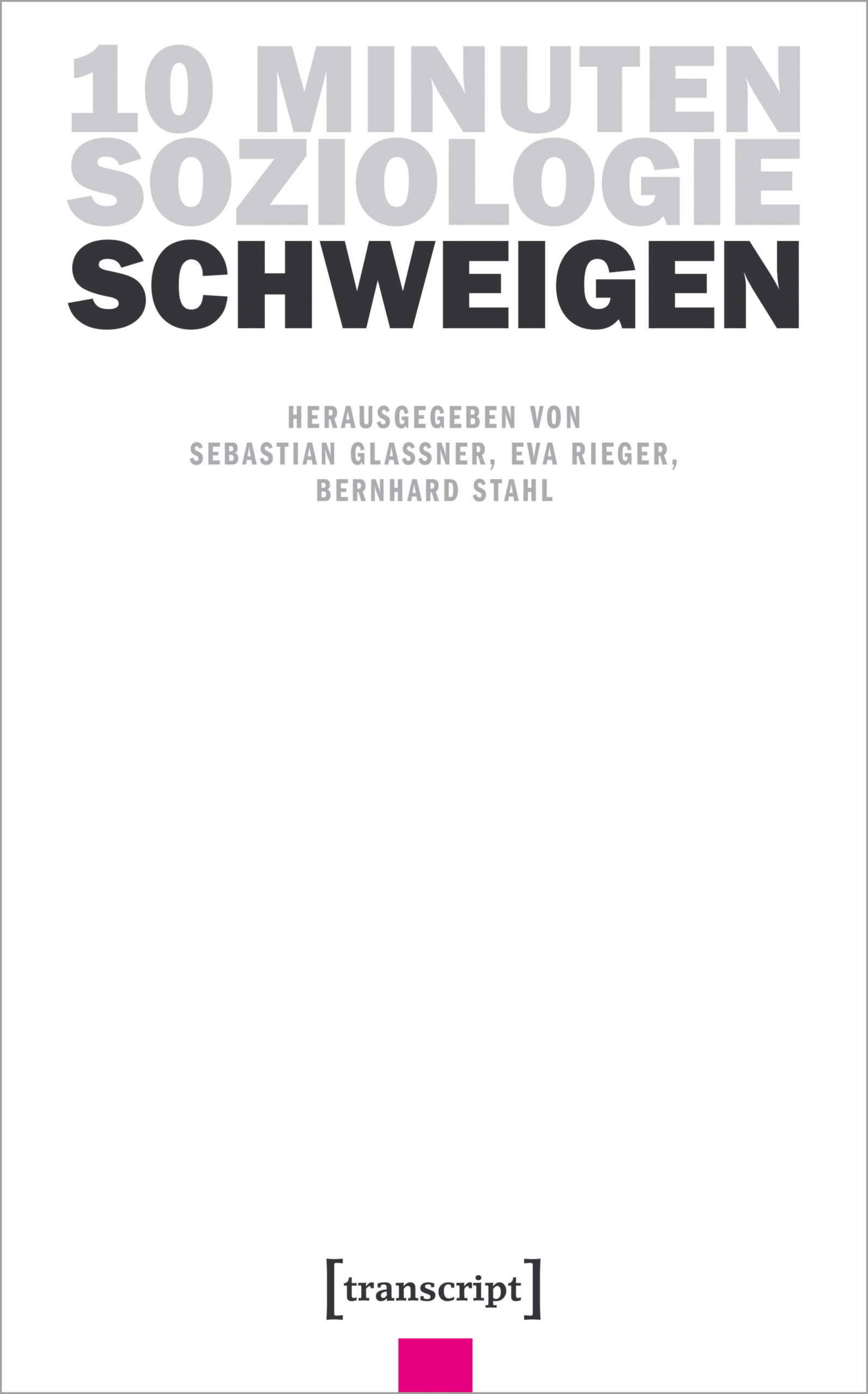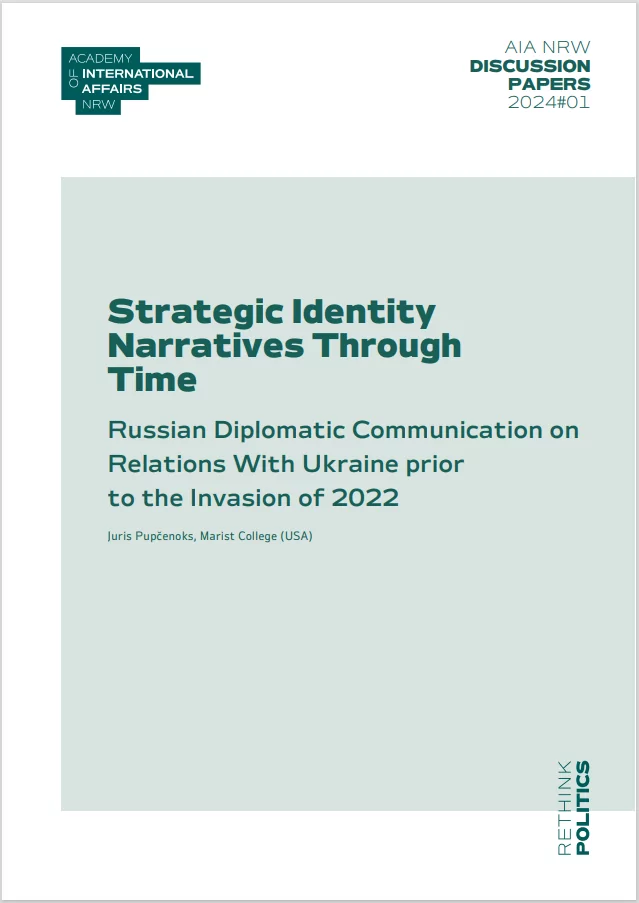
© Katja Velmans
Publications
-
The EU Green Deal and Renewable Energy Transitions in Europe–Africa Relations: A Synthesis of Complexities and Geopolitics
The EU Green Deal (EGD) is transforming Europe–Africa relations by moving away from historical patterns of exploitation toward equitable collaboration in renewable energy. By fostering co-ownership and co-creation of clean energy technologies, the EGD aligns with Africa’s development goals, offering stable, low-carbon energy initiatives less vulnerable to market shocks. However, the rise of far-right political…
-
Order and Ideology
Why the Trump Administration is Redefining American Power and Purpose This paper analyses the foreign policy orientation of the second Trump administration. It argues that this does not represent an attempt at reform, but rather a fundamental departure from the liberal international order that has existed since the Second World War. Contrary to initial assumptions,…
-
Sub-National Diplomacy: Alternative Pathways to Stability and Conflict Transformation in Nigeria and Pakistan
The traditional rulers in Nigeria and customary forums such as Jirgas in Pakistan function as hybrid governance institutions that mediate between state authority, local communities, and constitutional norms, asking how they sustain legitimacy and accountability in fragile democracies while delivering justice and managing conflict. The research uses a comparative qualitative approach that analyses policy documents,…
-
City Clusters in China-Germany Subnational Diplomacy
This paper offers a new framework for understanding China-Germany sister-city diplomacy through the lens of city cluster logic, enabling subnational actors to navigate complex institutional structures and networked partnerships more strategically. Drawing upon a comprehensive policy analysis and a series of 68 interviews conducted in Germany and China between 2022 and 2025, this study illuminates…
-
Masculine hierarchies in migrant homosocial workspaces: dominating and subordinating masculinities of Tajik labour migrants in Russia
This article analyzes how masculinity practices transform in homosocial workspaces of labour migrants. Drawing on extensive fieldwork in Russia and Tajikistan, the article scrutinises the experiences of Tajik migrant men who work in the largely informal construction sector in Russia. Their interactions are thus embedded in this country’s capitalist system, as well as ist migration…
-
Tradition, State, and Justice: Rethinking Statehood through Hybrid Governance in Nigeria and Pakistan
Hybrid governance in Nigeria and Pakistan has not only persisted as a legacy of colonial state formation but has also evolved into a complex system of shared authority between state institutions and traditional, religious, and community actors. This evolution reflects a qualitative shift toward negotiated governance, where Emirs, Obas, vigilante groups and jirgas play central…
-
Understanding Cultural Diplomacy and International Cultural Relations
The book analyzes the role of culture as an instrument of international politics and transnational understanding. It focuses on the theoretical foundations and practical forms of cultural diplomacy as distinct from international cultural relations. It examines the use of cultural means in the context of soft power and the significance of state and non-state actors.…
-
How the United States’ and Germany’s Politics Got Upended
The most recent national elections in two of the world’s leading economic powers and democratic stalwarts—Germany and the US—saw ethnonationalist parties closing in on taking power. The recent rapid rise in support for Germany’s radical right AfD party; and the success of Donald Trump’s MAGA movement now threaten to bring the institutional pillars and norms…
-
The Postmortem of the Nord Stream Projects
This paper presents a postmortem analysis of the Nord Stream 2 (NS2) pipeline project, examining its political, economic, and security implications within the Baltic Sea Re-gion (BSR) and the broader European Union (EU). Initially framed as an essential part of Ger-many’s energy transition, NS2 evolved into a symbol of geopolitical miscalculation and intra-EU discord. The…
-
Midwestern Leaders Study Tour 2025
The Midwestern Leaders Study Tour 2025 brought US Midwest leaders Steve Patterson, Anne Mervenne, Kent Smith, Ryan Sorenson, and Martina Guzmán together with German counterparts to tackle industrial and climate transitions. Led by John Austin, Fellow at the Academy of International Affairs NRW, the delegation launched at the Summer Academy in Bonn. Through subnational diplomacy,…
-
Embedding Urban and Subnational Diplomacy in a Multi-Level Governance Framework
Promoting urban and subnational diplomacy within a coordinated and synergetic multi-level governance framework is an important way to address global interconnected risks and challenges. Given the different nature, interests and positions of cities, subnational regions, national states and international organizations, their visions and ideas can substantially diverge from each other in some points. In a…
-
RE:THINK Academy Magazine #03
This issue explores pressing global dynamics across outer space governance, climate transformation, and conflict resolution. Articles examine the urgent need for security frameworks in space, Europe’s autonomy in orbit, and environmental perspectives beyond Earth. Simultaneously, it addresses structural change, geopolitical energy shifts, democratic engagement, and innovative approaches to diplomacy and peacebuilding from Ukraine to the…
-
Russia’s War against Ukraine and the Black Sea Region: Continuity and Change
Russia’s full-scale invasion of Ukraine in 2022 has shifted the Black Sea region from the periphery to the center of Euro-Atlantic and global security. The Kremlin seeks to dismantle Ukraine’s sovereign statehood, and cutting off Ukraine’s access to the Black Sea would be a major step towards that. Russia has imposed a blockade on Ukrainian…
-
The EU and the US after Russia’s invasion of Ukraine: a new convergence on strategic autonomy?
The European Union’s (EU’s) foreign policy and identity as a global actor have been deeply embedded in the liberal internationalist policy paradigm (Jørgensen et al, Chapter 1 in this volume; Jørgensen et al, 2020). The principles and norms of liberal internationalism, such as free trade, mutual respect of sovereignty, collective security, multilateralism, rule of law,…
-
Preference convergence, functional pressure and supranational entrepreneurship: explaining the launch and design of the EU’s military assistance mission to Ukraine
In October 2022, the EU established a military assistance mission in support to Ukrainian armed forces (EUMAM Ukraine). The decision to launch the mission runs contrary to what one would intuitively expect from the EU, considering member states’ traditional divisions on Russia, alternative training initiatives, Ukraine’s lacklustre position and the mission’s unconventional design. Despite the…
-
Regenerating Heartland Communitiesin Transition
Irrespective of a community’s or region’s size and historic economic and social composition, there are diverse paths that are being found for economic renewal in similarly situated older industrial and transitioning communities. These paths for new prosperity must be built on whatever local assets and identity the community has to work with, and be locally…
-
Between Stability and Change
This paper examines Chad’s 2022 National Dialogue (Dialogue National Inclusif et Souverain, DNIS) as a case study of the use of so-called “National Dialogues” during political transitions. After providing an analytical overview, the study finds that Chad’s dialogue largely served to legitimize the existing military-led regime rather than to effect genuine systemic change. The convened…
-
A pre-theory reality check: Structure and substance of heterarchy in the process of African unity
Hierarchy is conceptualised as based on a monolithic pyramid-like distribution of power with lower-ranked actors subjected to the regulation of top-ranked units. Empirically, the optimum performance of hierarchical systems is defined by high levels of compliance by lowly ranked units. In what may count as an analytical self-fulfilling prophecy resulting in a theoretical cul-de-sac, the…
-
Grasping the Nettle – Deepening Chinese-Russian Ties and the EU’s Need to Respond
The China-Russia partnership post-2022 has not only seen a quantitative increase in trade volumes, but also a qualitative shift towards a more sophisticated partnership in new technologies, innovation, and research and development (R&D) in domains such as artificial intelligence (AI), green hydrogen energy, e-commerce, etc. This may introduce new strategic, economic and security risks for…
-
FINLAND’S PATH TO KEEPING SOCIETY WHOLE
Even as the most unsettling threat to European democracies appears to be coming from across the Atlantic, within the continent there has been for almost a decade the growing specter of right-wing nationalists gaining control of power in once stable democracies. While analysts offer numerous explanations for the growth in internal support for what often…
-
As the US Government Joins “Team Authoritarian” – Here’s How to Maintain an International Rules-Based Order
To effectively counter economic competition, global security threats, and assaults on the rules-based global order from authoritarian nations, democratic allies must work together to build support and push the adoption and integration of two core national strategies: 1) building stronger domestic economies and strengthening democracy within nations- through large-scale inward place-based investments in people, innovation…
-
The controversy about Tajikistan’s history textbooks
Among its Central Asian neighbours, Tajikistan’s history textbooks still most closely resemble official accounts from the Soviet era. They stress the evils of the Russian Empire’s expansion to the region. At the same time, they also remain fairly positive about Tajikistan’s Soviet experience, underlining the Tajik Soviet Socialist Republic’s contribution to the Soviet state. Perhaps…
-
Framing feminism in Eurasia: bottom-up strategies of depoliticisation and repoliticisation,
Worldwide, feminist politics is increasingly marginalised and faces resistance from governments and societies. In post-socialist Eurasia, gender discourses are dominated by international donors promoting a neoliberal approach, as well as states mobilising patriarchal norms for nation building. Focusing on three grassroots feminist initiatives in Eurasia, this article explores alternative gender visions emerging from the ground…
-
The EU’s Need for a Strategic Shift towards China and Russia
The growing cooperation between China and Russia post-2022 has not only seen a quantitative increase in trade volumes, but also a qualitative shift towards a more sophisticated partnership in new technologies, innovation, and research and development (R&D) in domains such as Artificial Intelligence (AI), quantum computing, green hydrogen energy, etc. This may introduce new strategic,…
-
Enhancing EU-Africa Cooperation in Renewable Energy under the European Green Deal
The European Green Deal (EGD) presents a transformative framework for sustainable energy transitions, offering a unique opportunity for enhanced collaboration between the European Union (EU) and Africa. This partnership is essential in addressing global energy challenges, particularly in light of shifting geopolitical landscapes and the urgent need for energy security. Africa’s vast renewable energy potential…
-
Neo-Ottoman Soft Power: AKP’s Strategic Use of Turkish-Islamic Organizations in the German-Speaking Diaspora
The article indicates a shift in Turkey’s foreign policy initiated by the Justice and Development Party (AKP). Unlike its predecessors, the AKP aims to safeguard its interests not solely through traditional political alliances but also via “soft power” mechanisms. It employs a strategy of emotive communication through identity, religion, language, and culture and seeks to engage segments…
-
The long breath of autocracy
Governing through as a foundation, participation as a façade: why the Erdoğan system is likely to last longer than many had hoped – and how geopolitics plays into the president’s hands.
-
Chinese and other foreign investments in Africa’s development
Africa has become a focal point of foreign investments, particularly from China whose economic engagement with the continent has surged in recent years. However, the disproportionate focus of these investments on resource extraction raises concerns about long-term benefits for Africa. This paper examines the development implications of Chinese investments, with a focus on employment. The…
-
The positive externalities of US–China institutional balancing in the Indo-Pacific
The COVID-19 pandemic accelerated the international order transition, featuring intensified strategic competition between the United States and China, especially in the Indo-Pacific region.1 A prevailing view of US–China competition is the ‘Thucydides trap’—rooted in power transition theory and suggesting that strategic competition between a rising power and the hegemon will inevitably lead to conflict in…
-
When liars are considered honest
This article introduces a theoretical model of truth and honesty from a psychological perspective. W examine its application in political discourse and discuss empirical findings distinguishing between conceptions of honesty and their influence on public perception, misinformation dissemination, and the integrity of democracy.
-
How States Punch above Their Weight: Introducing Hybrid Actorness as Expanded Foreign Policy
The interplay of states and transnational actors has found its way into Foreign Policy Analysis. At the same time, the call for new typologies of foreign policy actors has increased. We therefore develop a typological theory of expanded foreign policy and introduce a model of hybrid actorness that alludes to foreign policy actors with both…
-
Routledge Handbook on Global China
This innovative Routledge Handbook sheds light on the complex and transformative nature of Global China, prompting a re- evaluation of existing theories on global and regional dynamics. It encourages theoretical innovation, methodological reflection and analytical transformation, providing new avenues for critical engagement with China’s global interactions. The chapters propose three key commitments for the study…
-
Sentiment Shifts and a New Approach to Strategic Narratives Analysis. Russian Rhetoric on Ukraine
How do countries’ strategic narratives (SNs) evolve during conflicts? Are changes in sentiment in diplomatic communication related to kinetic developments? This paper assesses Russian rhetoric toward Ukraine from 2004 to 2019 by qualitatively and quantitively analyzing nearly 3,000 statements by the Russian Ministry of Foreign Affairs. During this time, Russian identity narratives changed from projecting…
-
The silence of religions in times of war
Silence is not empty, but full of answers and omnipresent in everyday social life: whether individual secrecy, situational looking away or systematically imposed silence – silence conveys messages and sends signals. Nevertheless, the phenomenon of silence tends to be researched along disciplinary traditions; a comparison and even a dialogue between the disciplines has been lacking…
-
Strategic Identity Narratives Through Time
This paper illustrates how studying the evolution of strategic narratives – stories that states tell in their diplomatic communication to convince publics at home and abroad to frame their views and actions – can provide valuable insights into diplomatic developments. Rhetorical shifts often precede political shifts and can help identify opportunities to influence foreign policy.…
-
Religion, War, and International Relations
How does the field of study of International Relations (IR) engage with questions of religion and war? This paper addresses the long neglect the field experienced in terms of including religion in its research agenda and presents the increase of interest and approaches which has emerged in the last two decades. By including work from…
